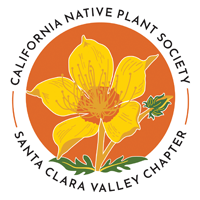Ben will begin with a discussion of the important differences among the four major groups of land plants: mosses, liverworts, hornworts and vascular plants. He will then dive into California bryology from an ecological and biogeographical perspective. Bryophytes have a unique suite of adaptations that allow them to live in many environments that vascular plants cannot. Because they're spore dispersed, they also exhibit biogeographic patterns that are quite different from those commonly seen in the seed plants. He will discuss basic principles of bryophyte ecology and biogeography in the context of the California flora, and also explore ongoing research into ecology and biogeography of California bryophytes.
Ben Carter is Assistant Professor and director of the Sharsmith Herbarium at San Jose State University. He did his undergraduate work at Cal Poly San Luis Obispo and earned a PhD from Berkeley studying bryophyte systematics. After graduating, he spent a year living on Santa Catalina Island and studying the Channel Island flora. He then spent several years on the east coast as a postdoctoral scholar at Duke University. His current interests include understanding the influence of microclimates on moss distributions and working with herbarium specimen data to understand broad biogeographic patterns across North America.
| Sun Mar 15 @ 2:30PM - 07:00PM CNPS SCV Board Meeting (Budget) |
| Mon Mar 16 @ 7:00PM - 08:30PM Conservation Committee |

